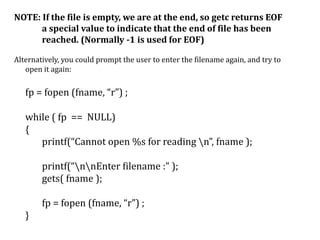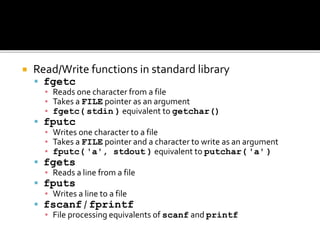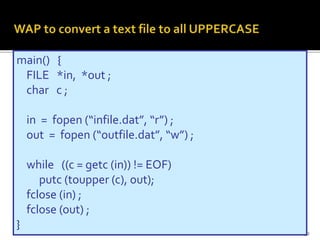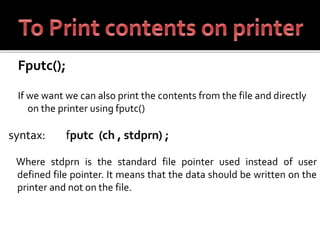File handling in C programming uses file streams as the means of communication between programs and data files. The input stream extracts data from files and supplies it to the program, while the output stream stores data from the program into files. To handle file input/output, header file fstream.h is included, which contains ifstream and ofstream classes. Common file operations include opening, reading, writing, and closing files using functions like fopen(), fgetc(), fputs(), fclose(), and checking for end-of-file conditions. Files can be opened in different modes like read, write, append depending on the operation to be performed.
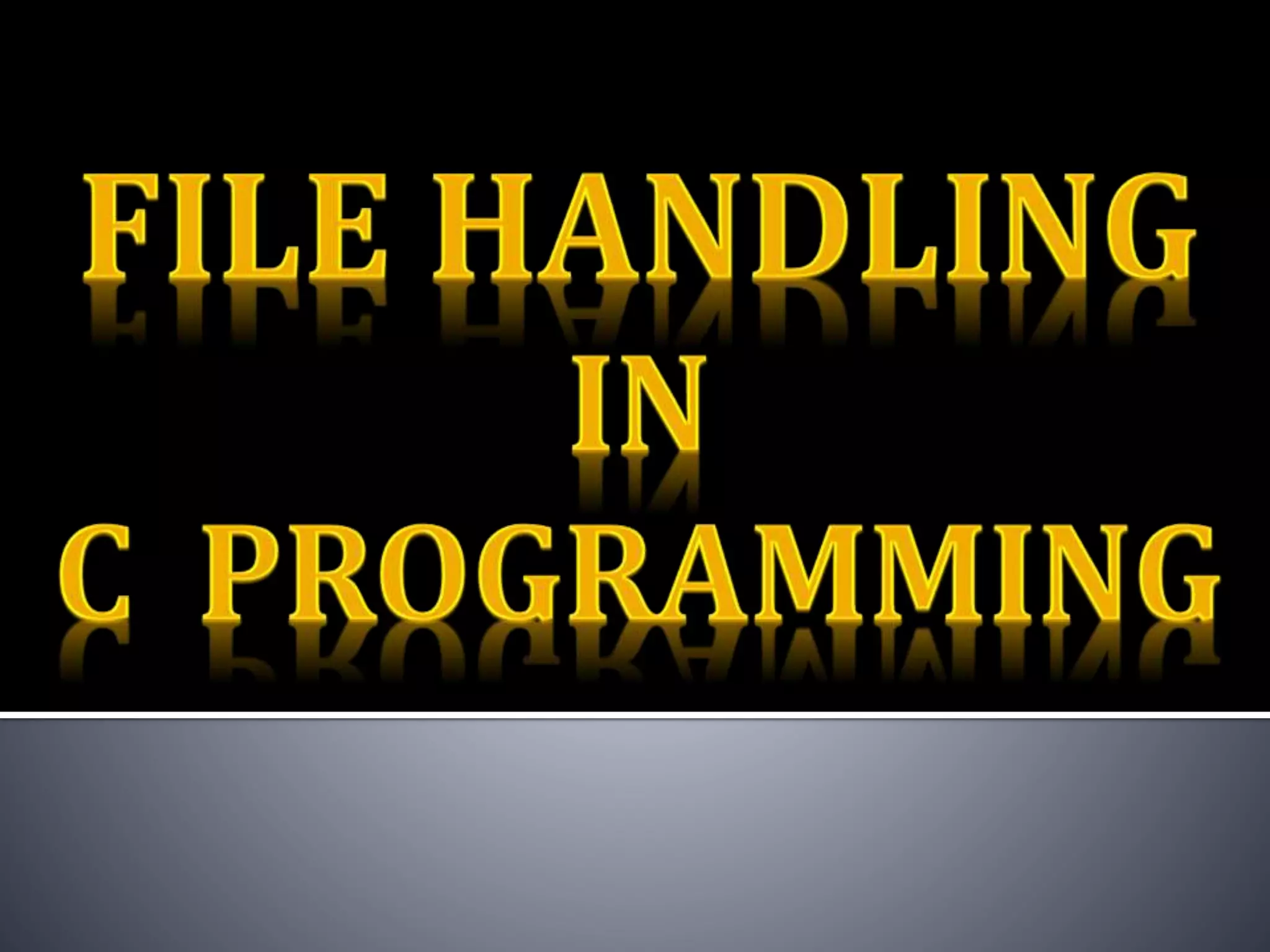
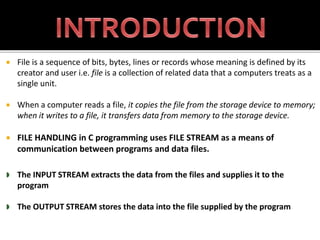


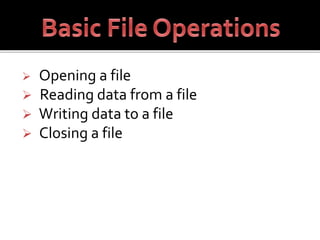
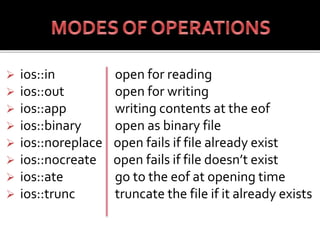

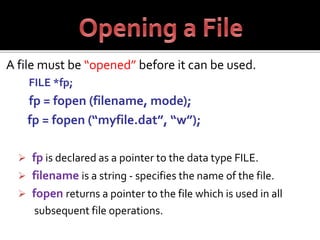
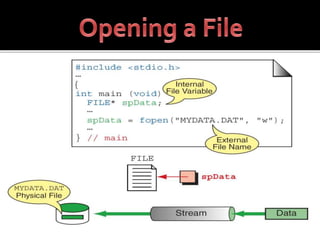
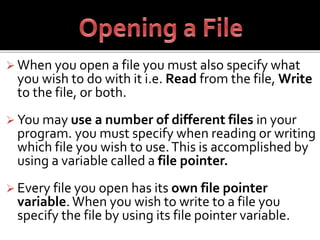
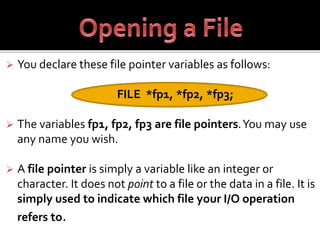
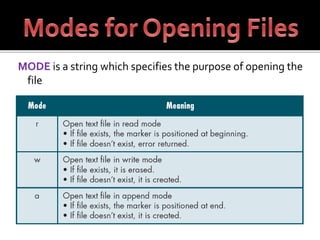
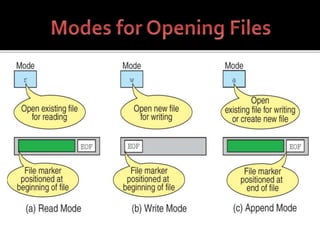
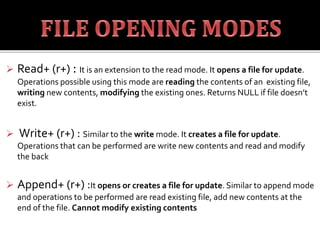
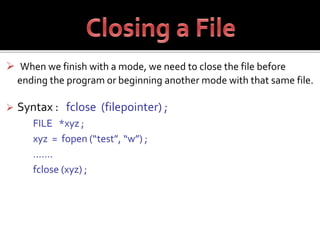
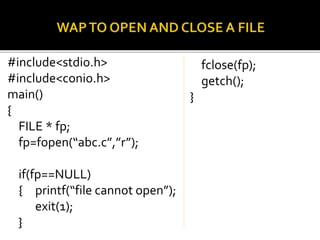
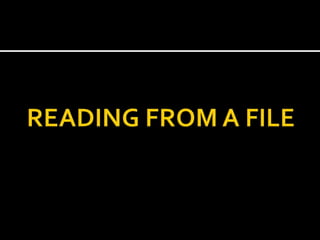
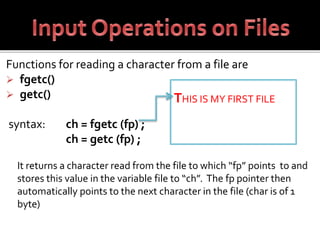
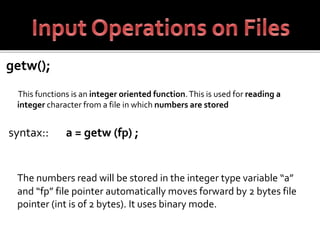
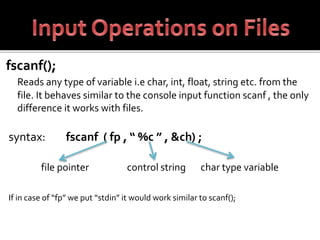
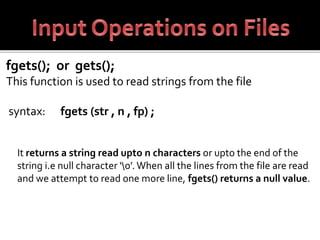
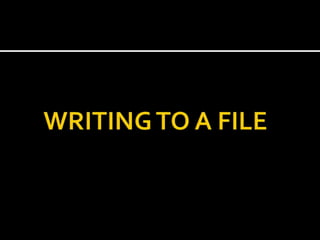
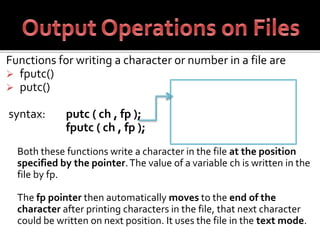

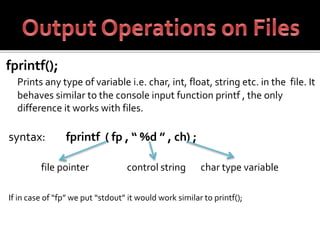
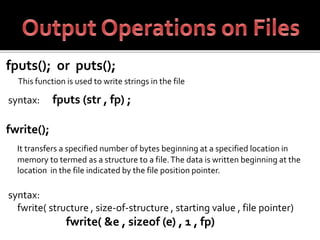

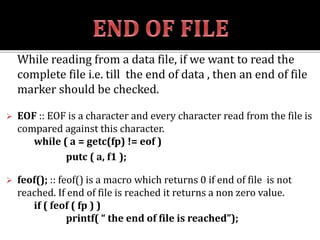
![void main()
{ FILE *fopen(), *fp;
int c ;
char filename[40] ;
printf(“Enter file to be displayed: “);
gets( filename ) ; // take in the filename as a string
fp = fopen( filename, “r”); // opens the file in read mode
c = getc( fp ) ; // reads the first character of the file
while ( c != EOF )
{ putc(c); //displays the character as it reads
c = getc ( fp );
}
fclose( fp );
}](https://image.slidesharecdn.com/filehandling-150415054914-conversion-gate01/85/File-handling-in-c-29-320.jpg)
